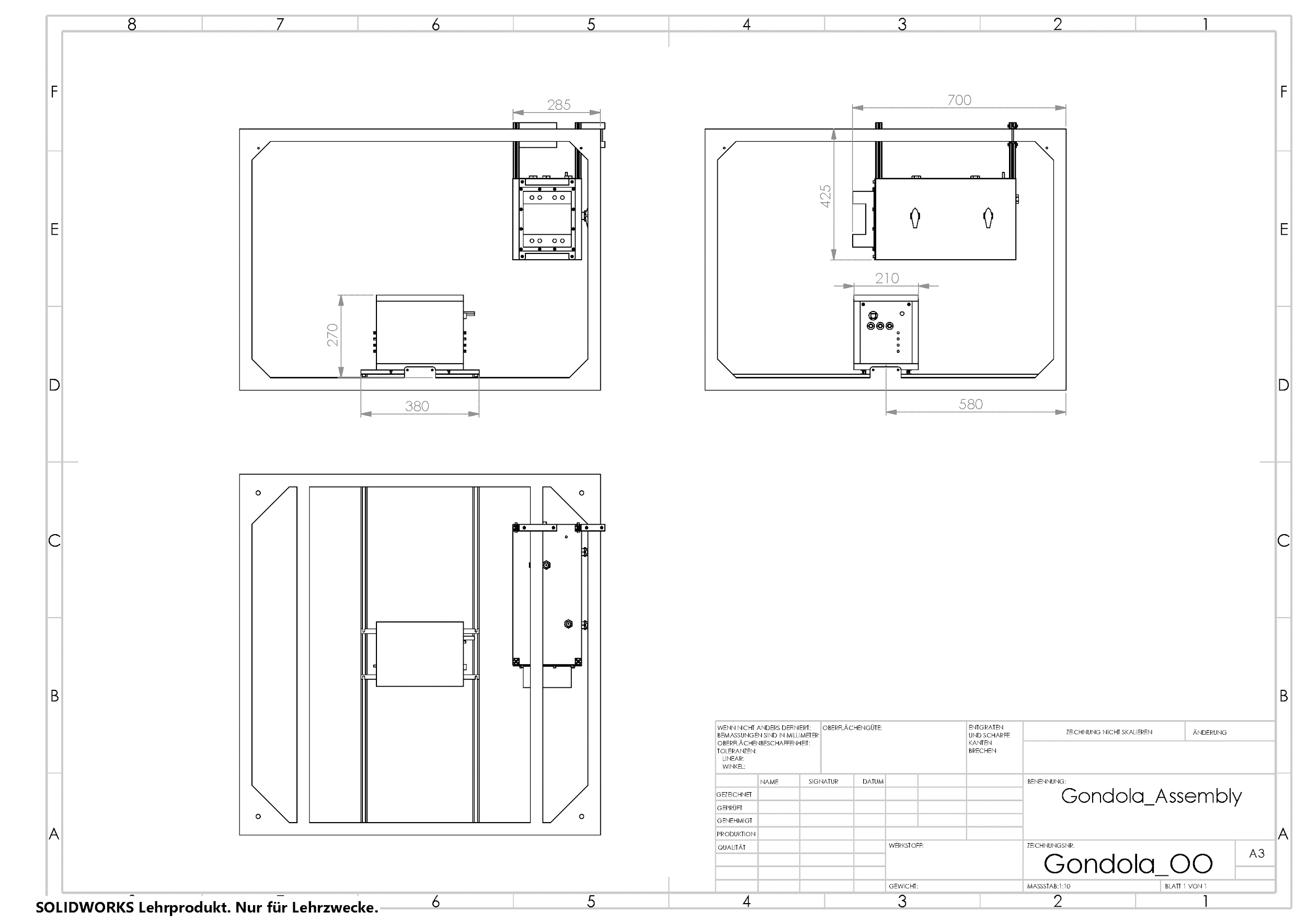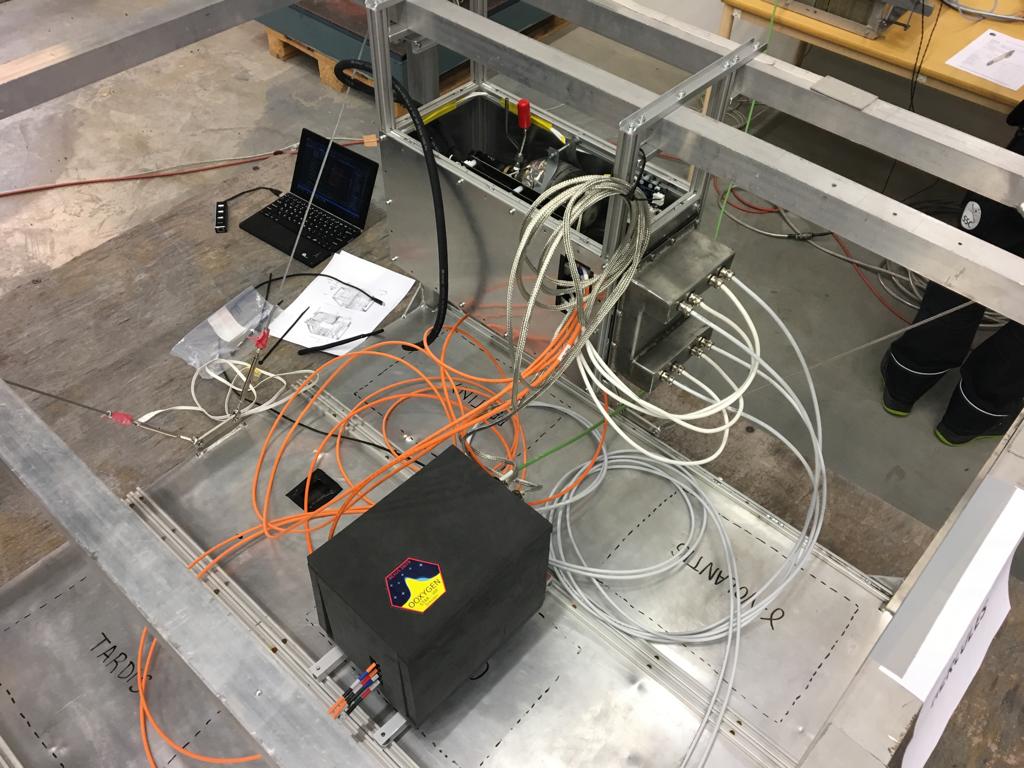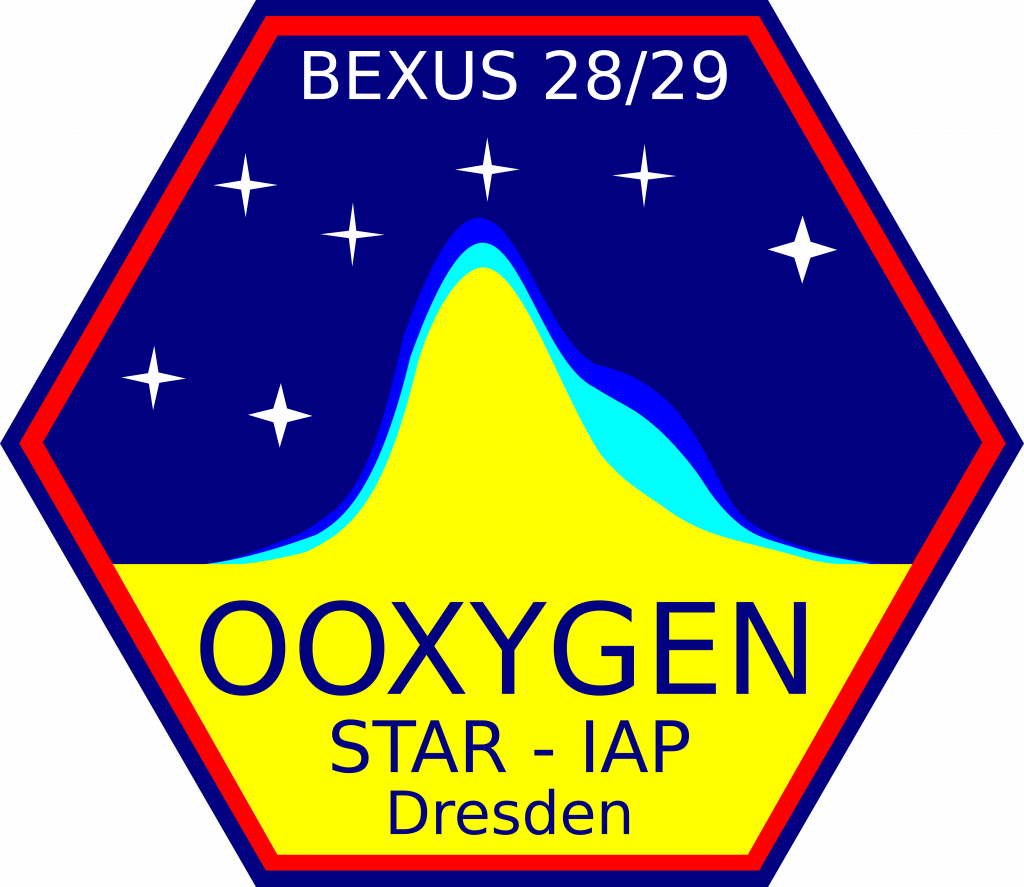
The measurement of oxygen concentration is becoming more and more important, in an age where most modern devices are equipped with an ever increasing range of sensors. On the one hand, this type of sensor serves a scientific purpose, such as a detailed observation of the Earth’s atmosphere. On the other hand, machines equipped with sensor technology play a valuable role in daily life through the analysis of technical processes which require the measurement of oxygen concentration, e.g. combustion processes in automobiles and power plants.
Our aim is to test a novel oxygen sensor which is based on the principle of biluminescence. The ambient oxygen concentration is to be continuously measured during the balloon flight, and a concentration profile of the flight generated. In contrast to traditional optical oxygen sensors, the biluminescence-based sensor does not suffer from photodegradation. A distinguishing feature of the sensor is that it is composed solely of organic electronics, which allows a cost-effective and material-saving production.
Team
| Jakob Lindenthal | Sensor Development, Project Management |
| Rico Nerger | Structural- und System Engineer, Project Management |
| Elias Ortlieb | Groundstation, Outreach |
| Jonas Weis | Electrical Engineer |
| Julius Karlapp | Electrical Power Analysis, Groundstation |
| Benedikt Boos | Structural- und Thermal Engineer |
| Karina Einicke | Flow Analysis |
| Benjamin Altenstein | Software Development |
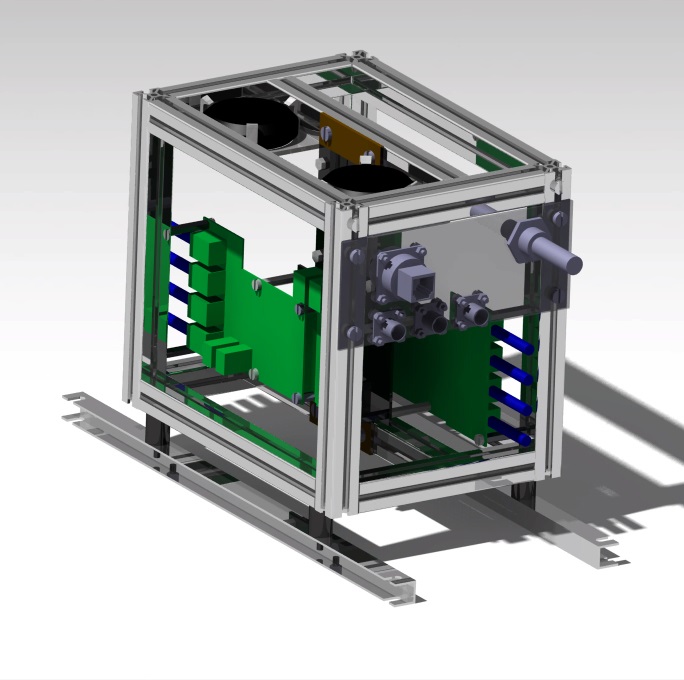
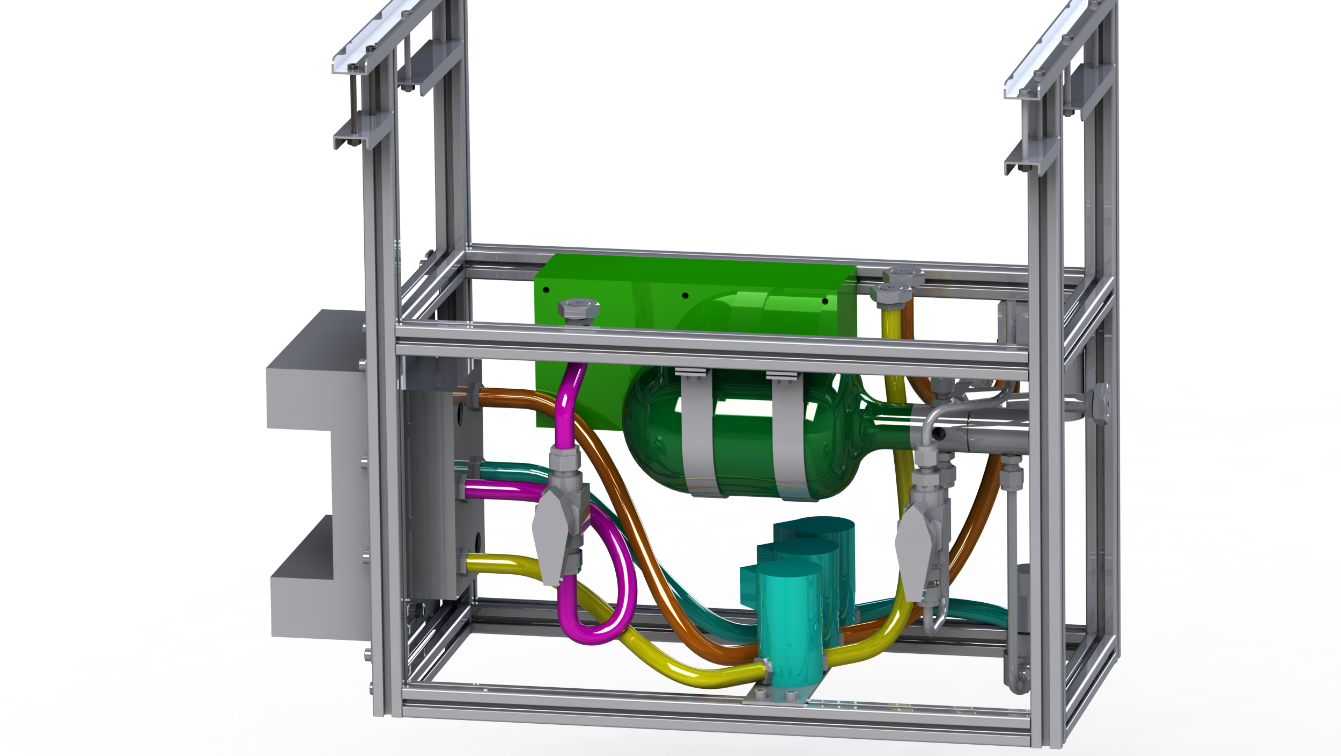
Experiment Aufbau
Das Experiment Setup besteht aus zwei über Kabel miteinander verbundenen Boxen: der Motherbox und der Childbox. Die Motherbox beinhaltet die Hauptrecheneinheit, die aus einem Raspberry 3b+ und einem selbstentworfenen Printed Circut Board (PCB) besteht. Diese ist aus Redundanzgründen doppelt ausgeführt. In der Childbox befinden sich weitere PCBs und das Pneumatiksystem für den Sensor. An die Childbox angeschraubt ist die Experimental Oxygen Sensor (EOS) Kammer.
